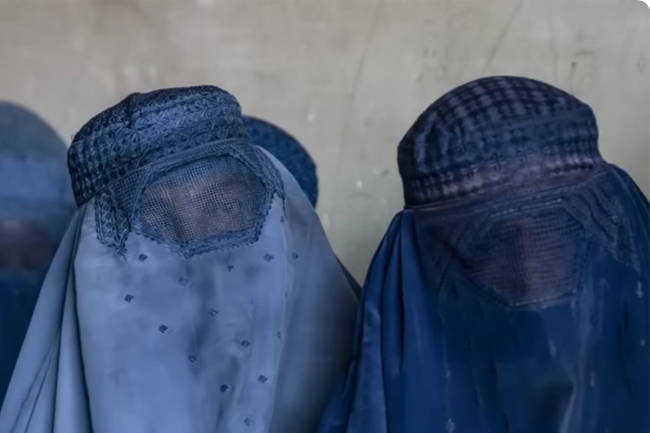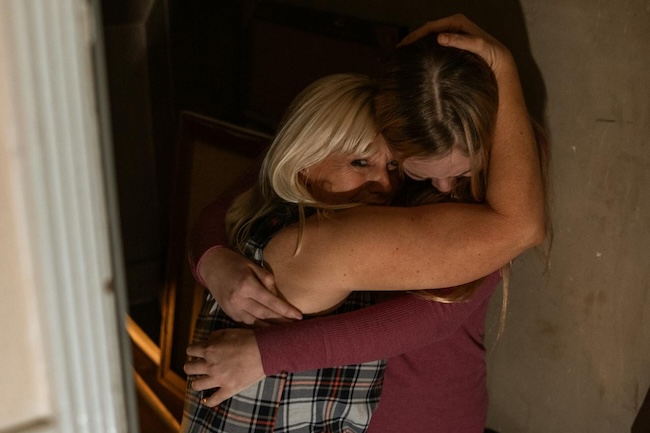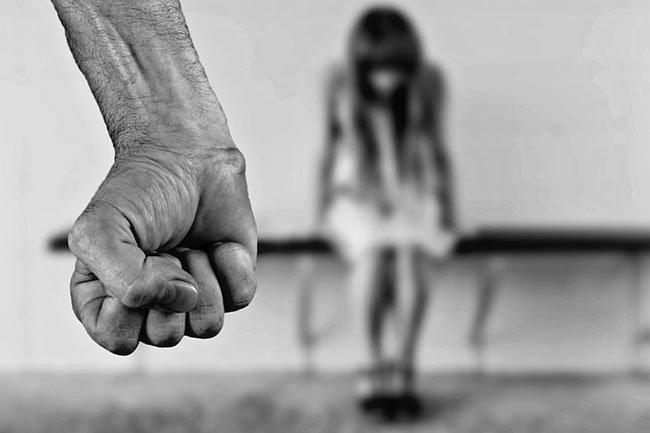"People think that it’s a disaster to fall in love in Afghanistan," said a 17-year-old school girl in the small village of Shugnan, Afghanistan.
"They tell us to not to look at or talk to the boys.
They say its' because we’re Islamic and it’s our law."
We were sitting on the outside of a small classroom in a local English school. The light was dim and on either side of us were two classrooms where students, both male and female, were studying English.
We were talking about boyfriends and girlfriends and how in Afghanistan, this is not allowed.
Rather, forced and arranged marriages are the norm, where parents decide who their children will marry. Something that this young woman and indeed all of the young people I met in Afghanistan, were not happy about.
"There was a girl and a boy who loved each other but they lived in an area that was controlled by the Taliban. People found out about their relationship and so they killed them," said a 25-year-old school teacher in Shugnan.
Such harsh punishments for having relationships outside of marriage are otherwise known as honour killings.
An honour killing is the killing of usually a woman or girl, but also on occasion men and boys, who are perceived to have "destroyed" the family honour by engaging in a sexual relationship outside of marriage. It is believed the only way to redeem the honour is to kill them.
Honour killings are prevalent throughout the Middle East as well as parts of South Asia and are typically practiced as extreme controls over women’s sexuality. Women are not allowed to have sexual relationships outside of marriage and often women and girls are not allowed to go places alone, mix with boys. And in some cases, girls are not even allowed go to school, out of the risk that she might get into a relationship with a boy.
As a consequence, many young women and men feel enormous pressure to forget about falling in love and accept the marriages their parents have arranged for them.
Throughout my time in Afghanistan, I asked the men and women that I met how they felt about having to marry someone that they did not necessarily love. Everyone with whom I spoke expressed feelings of frustration, saying they wanted to be able to choose whom they loved and married but were not allowed.
Compelled to accept to tradition and culture, and afraid of stigma and punishment with not doing so, they accepted th.
One young teacher working in the English school said that that there was a female mullah in the village who performed magic spells as a way of making people fall in love.
This was highly unusual as in Afghanistan, as the mullah’s are almost predominantly males.
Highly intrigued, I asked if I could meet her.
The school teachers agreed to take me. As we wondered down the windy warrens through the village, with the spectacular snow capped mountains surrounding us, he narrated his own story of lost love. He had fallen in love with one of the local girls in the village. However, when he went to ask her father for her hand in marriage, her father refused. He had already arranged for her to marry a cousin living in Canada.
The young teacher was devastated, but bound by tradition and culture, he accepted it.
We eventually came to a small house where a woman, who couldn’t have been more than 30, emerged from the house to greet us.
She was the mullah.
She led us into her small, makeshift house. A wooden stove was burning in the centre of the room and her family was seated on the floor, huddled around a small television. We went into a small room at the back of the house and sat down on the floor also. With the large mountain range glimmering through the rickety window behind us, she pulled out a small Koran and set of beads, and began to explain how the magic spells worked.
"When people are sick," she started, "I write things from the Koran on a small piece of paper and then they eat it. This then helps them to get better. I can tell people’s fortune, the Koran tells me."
I nodded in fascination as she held up the wooden beads and the Koran in her hands. I asked her about the love spells.
"Here in Afghanistan, people are not allowed to choose who they marry," she explained. "So they come to me looking for help to fall in love with those who they are married to."
I asked if she could show me how she performed the magic spells. She agreed and asked me for my name and my mother’s name. She then began to search through the beads and, when she had found what she was looking for, she pulled out the Koran and began to read a passage.
This was the love spell.
She explained:
"Everything I do is from the Koran."
That evening, as the teacher and I wandered back through the village, our conversation turned back to love.
He again expressed his frustration that he was not able to marry the woman he loved. I reflected upon the disappointment I would feel, should I not be allowed to love the one I wanted to love.
I looked around, the sun was setting over the enormous snow-capped mountains and the river was sparkling below, the natural beauty of the region was spectacular.
Yet behind the beauty was a culture that did not allow love or at least the ability for one to choose who they loved. It was a culture where, at least, in this small village, magic is needed to initiate feelings of love between new couples, and where falling in love on your own could come with a penalty as harsh as death.
I reflected upon the great harms that culture and tradition cause around the world. We're bound by the traditions of the past, people feel obliged to repeat them in the present and the future. Even when they cause themselves and others harm and discomfort.
I wondered: why? Why do people in Afghanistan and indeed throughout the world, accept ideas of the past that cause them significant harm in the present?
It’s a question that I think we should all be asking ourselves, in particular women. Do we accept traditions and cultures that bring harm to ourselves and to others, and if we do, why do we continue to accept them?
Johanna Higgs is an anthropologist and founder of Project MonMa, which advocates for women’s rights around the world.
 This work is licensed under a Creative Commons Attribution-NonCommercial-NoDerivs 3.0 Australia License
This work is licensed under a Creative Commons Attribution-NonCommercial-NoDerivs 3.0 Australia License
Support independent journalism Subscribe to IA.












